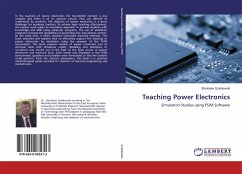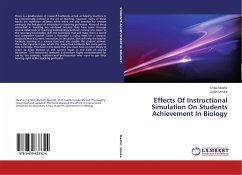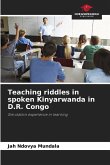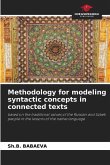In the teaching of power electronics the transmitted content is very complex and often is of an abstract nature. They are difficult to understand by students. The didactics of power electronics is a great challenge for academic teachers. To achieve high teaching effectiveness, the teacher must adopt an innovative approach to provide students with knowledge and skills using computer programs. The use of simulation programs increases the possibilities of presenting new educational content. At the same time, it offers teachers innovative teaching methods. This book describes and explains how to effectively support the teaching of power electronics by simulation using the example of the PSIM envirroment. The book presents models of power converters and of electrical drive with simulation results. Modeling and simulation of converters was carried out in the field of the basic course of power electronics and electrical drive. Each model was simulated in the PSIM environment, questions and problem were formulated so that the student could perform. From the author's assumption, the book is a practical methodological guide intended for teachers of electrical engineering and mechatronics.
Bitte wählen Sie Ihr Anliegen aus.
Rechnungen
Retourenschein anfordern
Bestellstatus
Storno








